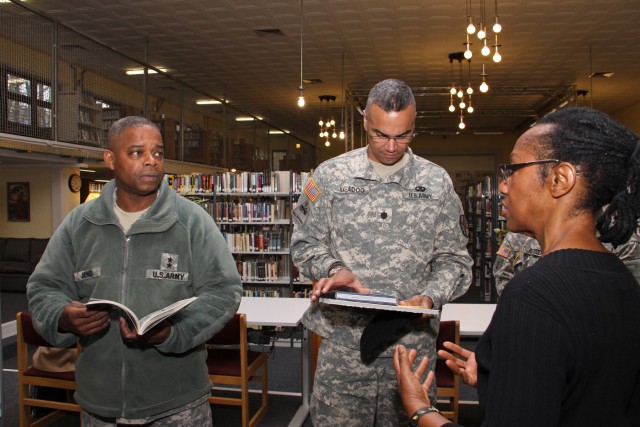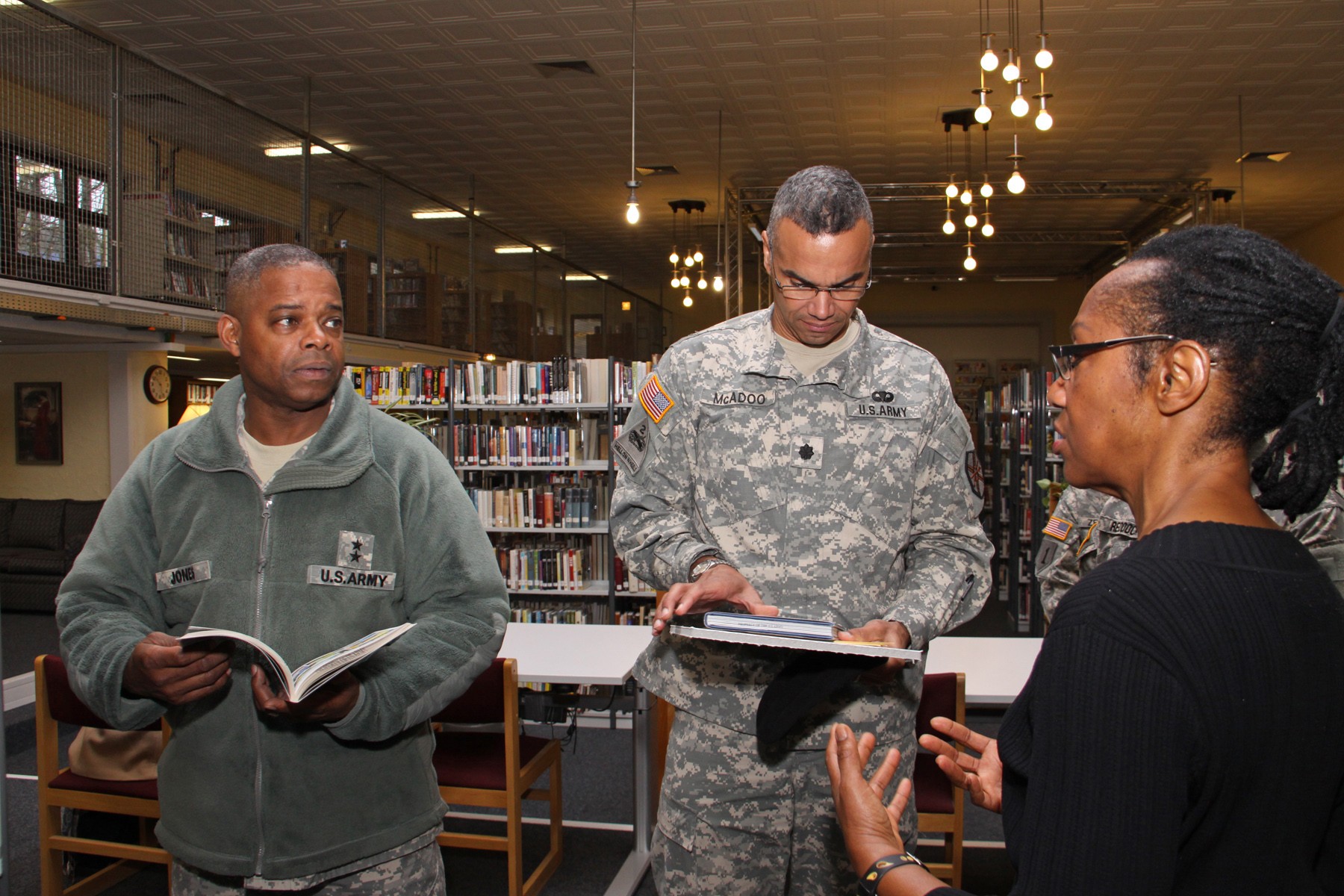
In October, the Army's General Library Information System switched to new software. Now registered users worldwide, including those who are deployed, can borrow a book via GLIS.
Currently 67 of the Army MWR Libraries have migrated to the new system. By the end of 2012, all of the Army's 85 main and branch libraries will be operating under the new system.
The GLIS software empowers users to write reviews, rate books, request titles, and renew materials. Registered GLIS users are able to search their library's catalog, view their account, search across many data sources for information, ask a librarian for help locating information, download audio books to iPods and MP3 Players, and read magazines and ebooks-all online.
The GLIS catalog also includes enhanced library catalog information - to include images of book covers, book reviews, tables of contents and best-seller lists. With GLIS, deployed Soldiers have many of the same library and information services they would have through their installation library.
For the FMWRC Library Program, the challenge is to provide easily-accessible and user-friendly services, given the logistics of ever-moving populations, the complexity of worldwide locations and multiple languages, and wartime security considerations.
"We made the decision to use the military ID card as a library card and to use email to communicate, so that Soldiers are able to use any MWR library, whether deployed, on TDY, or stationed in a remote location," FMWRC Librarian Carla Pomager said.
"Soldiers still need to contact us to modify their accounts for deployed service, but then the power is in their own hands. The ability to do research on their own and privately request materials is a great innovation," according to Germany's Web and Systems Librarian Amy Drayer.
Soon, library users will also be able to search their library's catalog and place requests through their smart phones.
But GLIS is not only a catalog of materials available within the libraries. It also links to more than 13,000 full text magazines, ebooks, college guides, and career information resources.
These resources include practice tests for college entrance exams, practice tests for entrance into the armed services, automotive repair manuals, and products geared to school curriculums.
"Soldiers, their Families and the Civilians that support them all need to feel like they are not isolated or in a completely different environment," Drayer said.
"We provide as many different services as we can, to bring a sense of home to them. While our mission is to support the troops, we find we often support them by providing a 'normal' atmosphere for their Families," she continued.
Jackie Stafford, FMWR librarian in Korea, believes that the standardization of the new system brings an added benefit.
"Familiarity of any kind is helpful when traveling to a new location. If a Soldier leaves a base where Millennium is used, he or she can feel assured about knowing how to use the same library system at the new assignment," Stafford said.
Another distinct advantage to the new system is the transportability of the books themselves.
Resource materials checked out from the Yongsan library in Seoul can be returned to Fort Belvoir in Virginia. A Soldier, about to be deployed to Iraq from the Patrick Henry Village installation in Heidelberg, can set up an account so that a book can be requested through GLIS, shipped downrange to the deployed location, and returned to the loaning library.
Materials destined for Afghanistan or Iraq usually are transferred from an FMWR library in Europe through the Army Postal Service at no cost to the Soldier.
So, for a Soldier or Civilian stationed in the Mizan District in Zabul Province, Afghanistan, his battle to gain knowledge or simply escape the rigors of combat for a few hours of rest and relaxation with a good book just got simpler.
To learn whether or not your installation library is already part of the GLIS system, visit: http://mylibraryus.fmwr.net/

Social Sharing